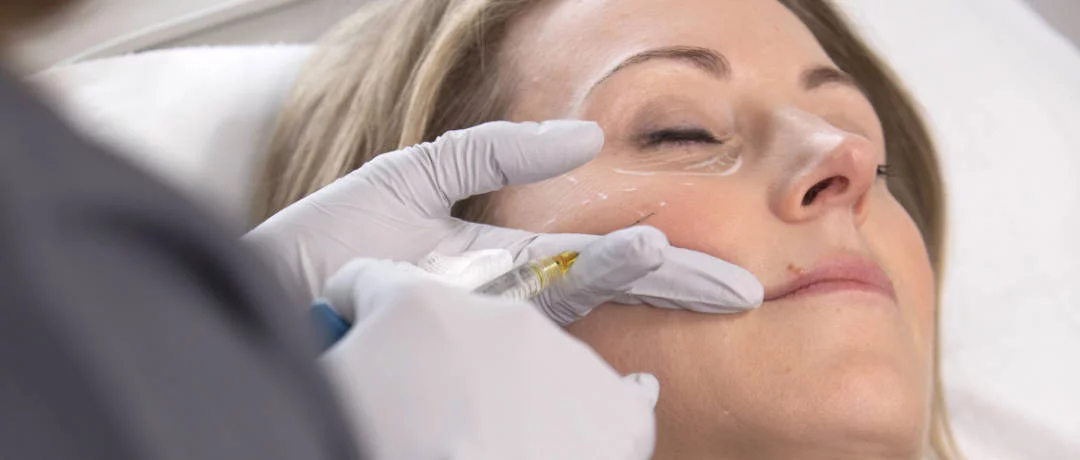After decades of research and use in the medical field, polynucleotides are a fairly new, sophisticated development in aesthetics: these ‘biostimulators’ work at a cellular level, triggering skin to regenerate itself. As polynucleotides initiate your body’s natural fibroblast production, this results in increased collagen and a thicker, healthier epidermis. As opposed to temporarily adding volume, they are a form of skin revitalisation, treating overall skin quality, scarring and also challenging areas to treat, such as the under eye area.
THE NEXT GENERATION IN SKIN REJUVENATION
Using filtered, ultra-purified and sterilised natural DNA fractions, these injectable serums deliver a raft of benefits for skin – firstly, working as a wound healing agent (on scar tissue and skin imperfections) then using their antioxidant properties to boost cell renewal, reduce inflammation and restore youthful volume and hydration. This type of ‘regenerative medicine’ prompts skin to perform better over time, using its own, natural process, so is a welcome, longer-term option for smoother, brighter, healthier skin.
Get in touch here to book a consultation or speak to a member of our specialist team on +44 (0)20 7486 3849.
Benefits of Polynucleotides
Tailored results
Improves skin quality
Natural, ongoing results
More youthful appearance
Safe & effective
At a glance
Numbing cream applied
Anaesthetic required
45-60 minutes
Appointment time
Minimal
Pain/Discomfort
Up to 48 hours
Downtime
6 to 9 months
Frequency of treatment
Conditions Treated
Acne & scarring
General skin health
Lines & wrinkles
Rosacea & redness
Under eye




